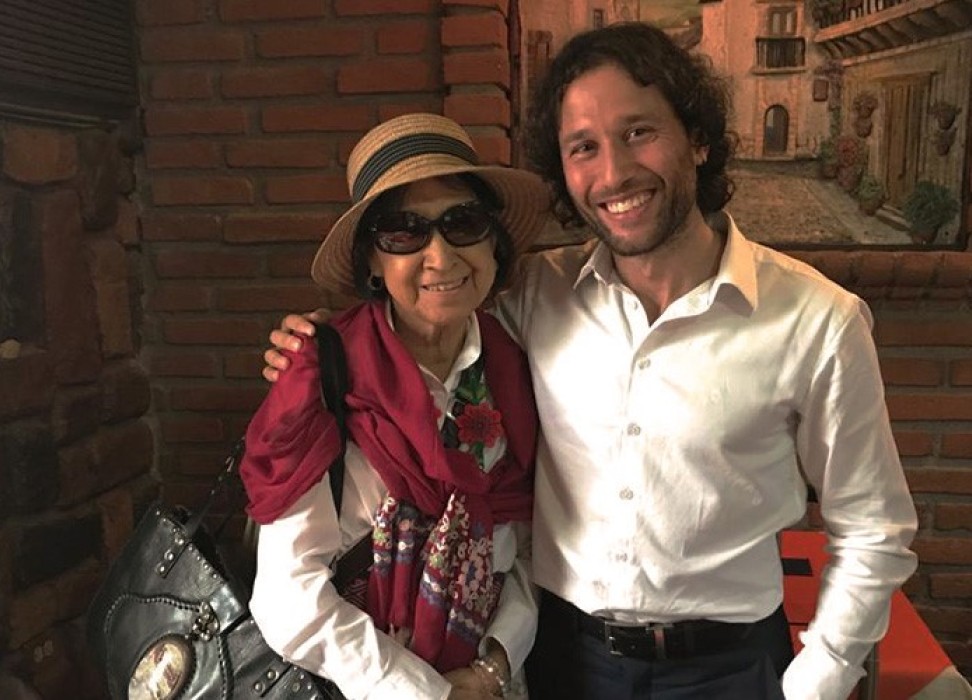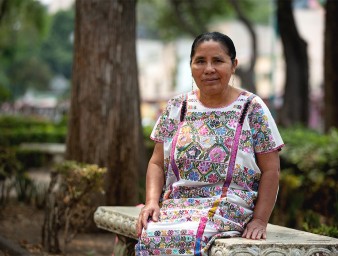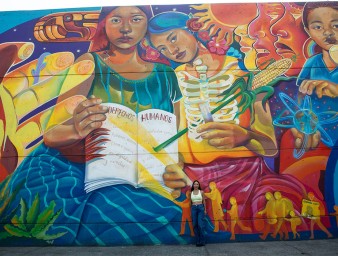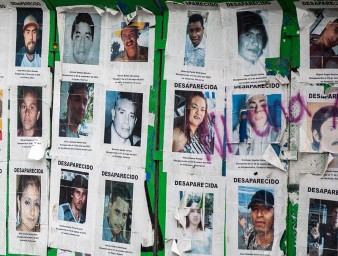Supporting human rights defenders and journalists in Mexico, “a privilege.”
19 May 2020

Mexico reported its first confirmed COVID 19 case in late February. As of 13 May, there are 40,186 confirmed cases of the virus in the country and 4,220 deaths.
UN Human Rights in Mexico has been working closely with national and local institutions to help ensure that measures taken to combat the virus do not unduly impact on human rights, especially on those most vulnerable.
Ricardo Neves is a staffer in Mexico, with a focus on monitoring and supporting journalists and human rights defenders. He says the pandemic has been a challenging time for these groups.
How has COVID 19 affected your work?
When it comes to work, the [physical] distancing has a huge impact. One of the absolute privileges of our work is that it usually entails meeting all sorts of people and having close contact with a number of people, victims, civil society, organization, authorities. After all, you know, human rights work is all about the people and the bonds we create. So the foremost impact is definitely the inability to personally meet all these people. And it's a heavy toll because our work can be understood or simplified to a certain extent as receiving information from people, usually victims or their representatives duly processing it and delivering key messages to other people who have the duty or the power or ability to generate positive change for the situation. So being further away than usual limits our capacity to receive information and our capacity to advocate and pursue positive change.
What are some of the challenges facing human rights defenders and journalists in Mexico during the pandemic?
Mexico is a country where the work of both human rights defenders and journalists is already extremely complicated. During the COVID-19 pandemic context, the situation hasn't changed. We have seen a continuation of attacks against journalists and human rights defenders. For example, we have at least one journalist who was brutally shot and killed, another journalist who was stabbed, and a third one was also shot, but fortunately recovered, during the coverage of a protest. All of them women. When it comes to human rights defenders, we have documented at least three killings so far during the pandemic.
How is UN Human Rights in Mexico supporting journalists and human rights defenders during these extraordinary times?
We focus on supporting the operation of the National Protection Mechanism [for Human Rights Defenders and Journalists] and we keep participating in the meetings of the governing board where protection plans for journalists and human rights defenders are decided. So our focus is on protection and also, of course, of proactively providing information to different institutions regarding international human rights standards and concrete recommendations on how to act.
Why is it important to stand together, stand up for human rights, especially during the pandemic?
Solidarity and understanding are key in these trying times. First of all, we must understand that despite the obvious economic implications, we're dealing with a human issue and not a financial one. A human rights-based approach places human beings in the center of the emergency responses and other measures. The virus is a threat to the whole human kind, regardless of country, religion, possessions or ethnicity. This means that no country can solve or overcome this alone. Only if we act together in solidarity can we overcome the virus and pave the way for recovery from its many impacts.
19 May 2020



